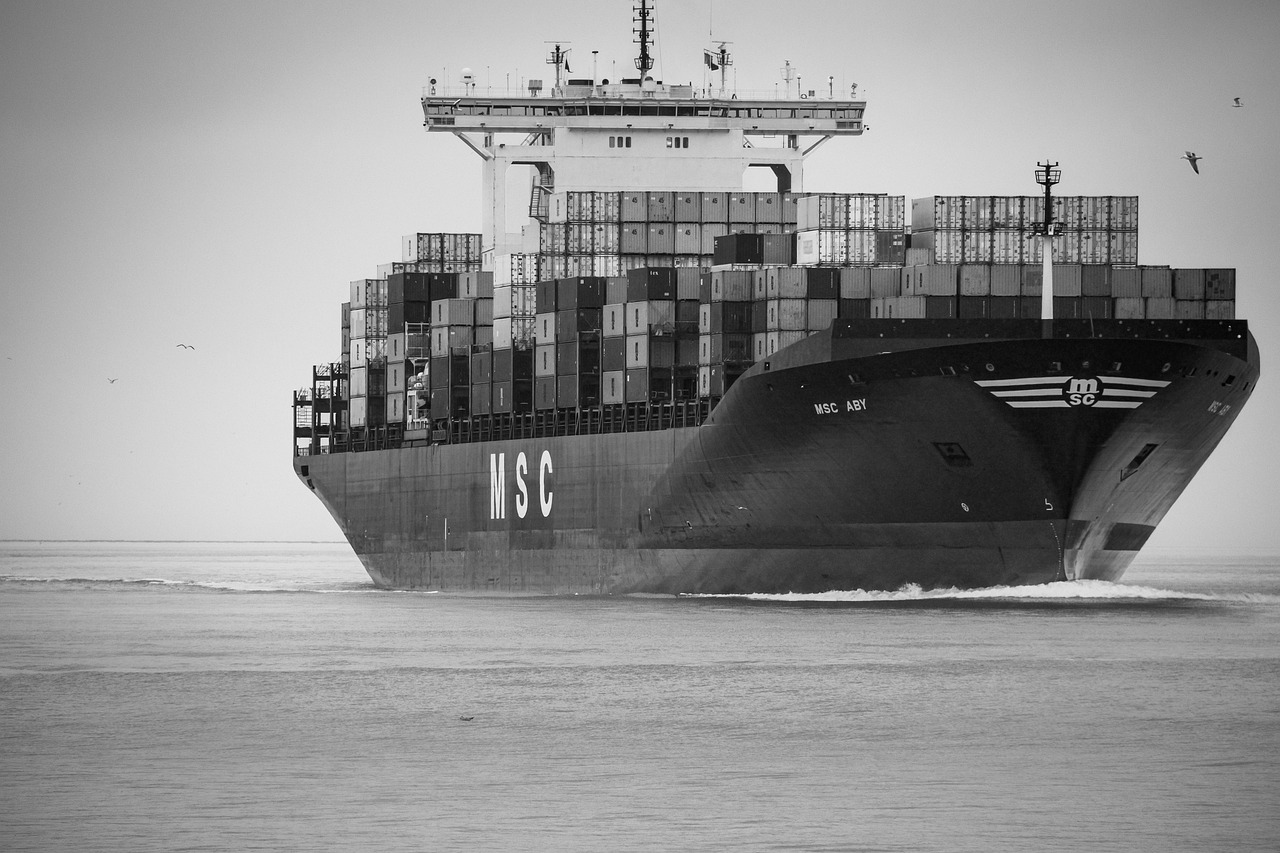The goods are on the vessel to Poland and during transport they are being sold. Such situations are happening more and more often. They raise questions about the rules of settlement of sales in international waters for the purposes of Polish VAT. Today we will try to take a closer look at this issue.
In accordance with Article 5 sec. 1 of the Polish VAT Act, the following are subject to the above-mentioned tax:
1. supply of goods and services for consideration within the territory of the country;
2. export of goods;
3. import of goods into the territory of Poland;
4. intra-Community acquisition of goods for consideration on the territory of Poland;
5. intra-Community supply of goods.
The above provision results in the so-called territoriality principle, according to which the above-mentioned activities are subject to VAT, but only in a situation where the place of their provision (taxation) is the territory of the country, which – according to the definition contained in Article 2 sec. 1 of the Polish VAT Act – means the territory of Polish (land and maritime territorial waters/continental shelf).
The above principle is consistent with the established line of jurisprudence of administrative courts in this context, which is confirmed, for example, by the judgment of the District Administrative Court in Warsaw of 26 November 2021 (file reference number III SA/Wa 372/21), the judgment of the District Administrative Court in Gliwice of 28 October 2021 (file reference number I SA/Gl 776/21) or the judgment of the District Administrative Court in Wroclaw of 30 September 2021 (file reference number I SA/Wr 638/20), which indicate that: “Value added tax is charged on transactions that take place or are treated as taking place in a strictly defined territory. In a situation where the performance of a given taxable activity takes place outside this territory, the activity will not, as a rule, be subject to taxation in a given country. In other words, according to the principle of territoriality, the right to tax a given transaction by a member state ends at the place where the tax jurisdiction of another country (not necessarily belonging to the EU) begins.”
Thus, as it follows from the above, sales transactions on a vessel located in international waters will not be subject to VAT in Poland.
The above is primarily due to the fact that at no time will these goods enter the territory of the country. They remain outside the Polish jurisdiction.
Confirmation of such a position can be found, for example, in the individual interpretation of 11 April 2018 of the Director of the National Tax Information (file reference number 0112-KDIL1-3.4012.96.2018.1.AP).
However, there is a need to include such transactions in the SAF-T file. The provisions of the Decree of the Minister of Finance, Investment and Development of 15 October 2019 on the detailed scope of data contained in tax returns and records in the field of value added tax (Journal of Laws of 2019, item 1988) are binding here.
In the appendix “Explanations as to the method of filling in and the place of filing the return and the method of presenting data in the records sent in accordance with Article 109 sec. 3b and 3c of the (Polish VAT) Act” to the above-mentioned Regulation, it is indicated that: “The part of the declaration concerning the calculation of the amount of tax due shows all taxable activities (the amount of the tax base and the amount of tax due) for which the tax obligation arose in the accounting period, for which the return is submitted, after taking into account the adjustments resulting from the tax regulations, if they affect the settlement in this period. This also applies to activities performed outside the territory of the country, in relation to which the right to a reduction of the tax due or a refund of input tax is entitled.”
In practice, the above means that foreign transactions should also be reported in the SAF-T file, but only those that give the right to settle Polish VAT (Article 86 sec. 8 point 1 of the Polish VAT Act).
Therefore, if the seller is entitled to deduct input VAT, pursuant to Article 86 sec. 8 point 1 of the Polish VAT Act, or the right to a refund of the amount of input tax, pursuant to Article 87 sec. 5 of the Polish VAT Act in relation to the sale of goods in international waters, this sale transaction should be reported in the record part of the SAF_VAT file in item K_11 (the amount of the tax base resulting from the supply of goods and provision of services outside the territory country) and in the declaration part of the file in item P_11 (the amount of the tax base for the supply of goods and services outside the territory of the country – disclosed in K_11) as supplies of goods made outside the territory of the country.
Thus, the only criterion determining the necessity of presenting such a transaction in the Polish SAF_V7 is whether the taxpayer is entitled to settle the Polish VAT related to it.
The above was confirmed in the individual interpretation of the Director of the National Tax Information of 18 March 2022 (file reference number 0114-KDIP1-2.4012.579.2021.2.RM).
At the same time, in the context of a sale made “at sea”, due to the transaction being made in international waters, i.e. a territory that does not constitute any of the countries, a given transaction should not be settled by issuing an invoice with Polish VAT, which is confirmed, for example, by the individual interpretation of the Director of the National Tax Information of 9 February 2021 (file reference number. 0112-KDIL1-3.4012.467.2020.2.JK).



